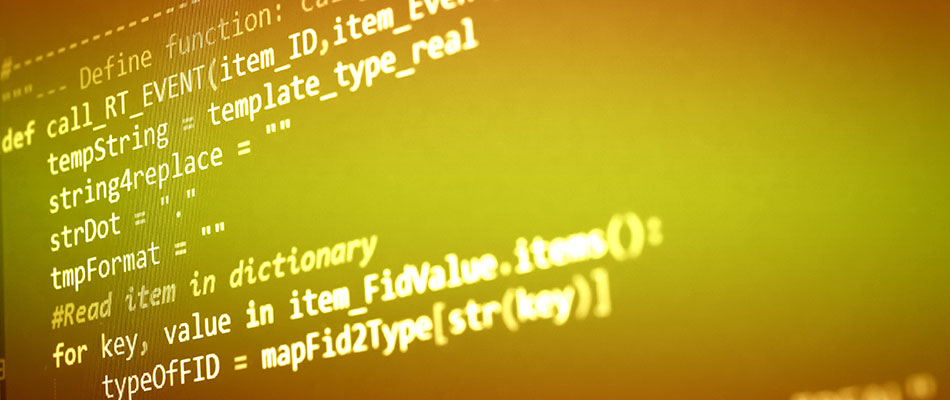Mathematics is indeed essential for computer science, although the specific level and depth of mathematical knowledge required can vary depending on the area of computer science and the nature of the work involved. It serves as a foundational element that supports and facilitates the understanding and application of many concepts in computer science. Mathematics plays a crucial role in developing logical thinking, critical reasoning, and problem-solving skills.
Table of Contents
Does Computer Science Require Math?
Computer science relies heavily on mathematics, especially in areas like algorithms, data structures, cryptography, machine learning etc. Mathematics gives us the theories and tools we need to understand and solve complex problems in these fields. It’s the backbone that supports how we design algorithms, store data efficiently, keep information secure, and develop intelligent systems.
Developing efficient algorithms, solving complex problems, and advancing technology require the interaction between mathematics and computer science.
What kind of math is used in computer science?
Mathematics forms the foundation of computer science, enabling the development of algorithms, the analysis of data, and the creation of models and simulations. Different branches of math provide the tools and frameworks necessary for various aspects of computing. Listed below are the mathematical concepts used in computer science:
- Discrete Mathematics
- Calculus
- Algebra
- Probability and Statistics
- Number Theory
- Geometry and Topology
Detailed Explanation of Mathematics in Computer Science
Mathematics is essential in computer science, providing the tools and frameworks for solving real-world problems. Few Mathematical concepts along with their importance in Computer science is given below
Discrete Mathematics for Computer Science:
Discrete mathematics stands out as one of the most directly applicable branches of mathematics to computer science. It encompasses essential topics such as logic, set theory, combinatorics, graph theory, and discrete probability, all crucial for mastering foundational concepts in computer science.
- Logic: Logical reasoning serves as the cornerstone for designing algorithms and programming. Proficiency in propositional and predicate logic is indispensable for constructing algorithms, verifying their correctness, and optimizing their efficiency.
- Set Theory: Sets play a fundamental role in organizing and processing data. Concepts like unions, intersections, and Cartesian products are extensively utilized in database theory and query optimization.
- Combinatorics: This field aids in assessing the complexity of algorithms, particularly those involving counting and probability, which are pivotal in various computational tasks.
- Graph Theory: Graphs serve as powerful models for depicting networks, relationships, and structures. They are indispensable in domains such as computer networks, social network analysis, and solving puzzles and games.
Calculus:
Calculus holds significant importance in various areas of computer science, especially those dealing with continuous change and optimization.
- Optimization: Calculus plays a crucial role in solving optimization problems encountered in algorithms, particularly in fields like machine learning and artificial intelligence. It provides methods to analyse functions and determine their minima and maxima, essential for optimizing algorithms and improving efficiency.
- Modeling and Simulation: In computer science, calculus is utilized extensively to model and simulate dynamic systems. This capability is vital in fields such as computer graphics, robotics, and scientific computing, where precise modelling of physical phenomena and accurate predictions are required.
Algebra:
Algebra forms a foundational pillar for various aspects of computer science, particularly in specialized fields like cryptography, coding theory, and algorithm design.
- Abstract Algebra: Structures such as groups, rings, and fields are critical in cryptography. For instance, modern encryption algorithms like RSA rely on properties of large prime numbers and modular arithmetic.
- Linear Algebra: This is particularly important in graphics, machine learning, and data science. Concepts such as vectors, matrices, and eigenvalues are used extensively in image processing, facial recognition, and neural networks.
Probability and Statistics:
Probability and statistics are indispensable in the era of big data and artificial intelligence.
- Machine Learning: These fields heavily rely on probability and statistics to make predictions and decisions based on data. Understanding probability distributions, statistical inference, and hypothesis testing is crucial for developing and evaluating models.
- Algorithm Analysis: Probabilistic methods are often used in algorithm analysis, particularly for randomized algorithms and understanding average-case complexity.
Number Theory:
Number theory has significant applications in computer science, particularly in cryptography.
- Cryptography: Modern cryptographic systems, such as RSA and ECC (Elliptic Curve Cryptography), are built on principles of number theory. Concepts like prime numbers, modular arithmetic, and elliptic curves are fundamental to these systems.
- Error Detection and Correction: Number theory is also used in designing algorithms for error detection and correction, which are crucial for reliable data transmission and storage.
Geometry and Topology
Geometry and topology find applications in computer graphics, computational biology, and more.
- Computer Graphics: Geometry is the foundation of computer graphics, where concepts such as transformations, projections, and rendering are crucial.
- Computational Biology: Topological data analysis is an emerging field that uses concepts from topology to study the shape of data, which is particularly useful in bioinformatics.
Practical Applications
The application of mathematics in computer science is not just theoretical but also highly practical. Here are a few examples:
- Software Development: Understanding mathematical logic helps in writing correct and efficient code. Algorithms often require a strong foundation in mathematics to implement effectively.
- Data Science and Analytics: Handling large datasets, extracting meaningful insights, and making data-driven decisions require a solid understanding of statistics and probability.
- Cybersecurity: Protecting data through encryption, secure communication protocols, and analyzing potential vulnerabilities involves a deep understanding of number theory and algebra.
Requirement of Math in Computer Science – FAQ’s
Do I need to be good at mathematics to study computer science?
While a strong foundation in mathematics is beneficial, the level of mathematical proficiency required varies. Basic understanding of algebra, calculus, and discrete mathematics is typically sufficient for introductory computer science courses.
Can computer science be studied without mathematics?
Studying computer science without mathematics is challenging and typically not feasible beyond introductory levels. While basic programming concepts can be learned with minimal mathematics, deeper understanding and advancement in computer science require mathematics.
How does mathematics help in programming?
Mathematics is integral to programming and is used in many ways to solve problems, optimize algorithms, and manipulate data. Several mathematical concepts such as arithmetic operations, logical operations, numerical analysis etc. are applied in programming.
How does mathematics help in algorithm design?
Mathematics is crucial in algorithm design, offering tools like Big O notation for analyzing performance, optimization methods such as calculus and linear algebra, and concepts like graph theory and probability. These elements enable efficient data structure design, logical reasoning, and effective solutions to complex problems in fields like cryptography, machine learning, and computer graphics.
Why is linear algebra important in machine learning?
Linear algebra is crucial in machine learning for tasks such as data representation, feature extraction, model formulation, optimization, performance evaluation, and deep learning operations. It provides essential tools and frameworks for handling large datasets efficiently and optimizing complex algorithms.
How does mathematics contribute to cybersecurity?
Cryptography, a key component of cybersecurity, relies on mathematical principles such as number theory and modular arithmetic. Cryptographic algorithms use these principles to encrypt and decrypt data securely, protecting information from unauthorized access.






